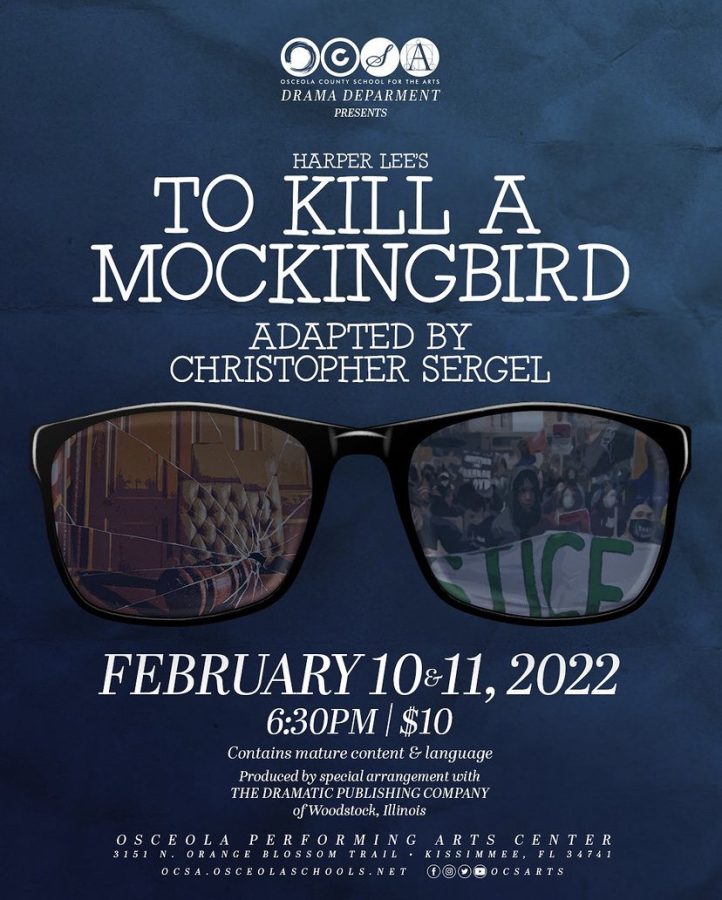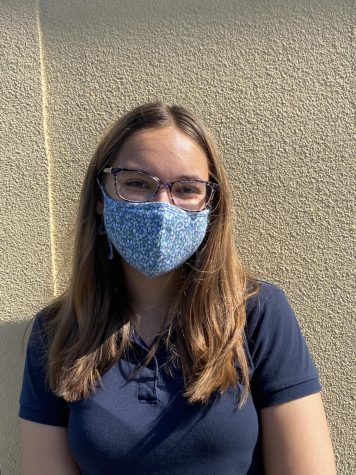To Kill a Mockingbird: Coming Soon to OCSA!
Watch To Kill a Mockingbird on February 10th or 11th!
January 31, 2022
For only 2 nights, Harper Lee’s “To Kill a Mockingbird” will be featured at OCSA. Everyone is invited to attend the performance on February 10th and 11th at 6:30 PM for $10. This thrilling courtroom drama is sure to captivate the audience with it’s timeless message and riveting performance by the actors.
This theatrical performance explores themes of prejudice, moral conviction, and the ever-pulling tug to do what is right. In this drama, Tom Robinson, a young black man, is falsely accused of assault. When local lawyer, Atticus, defends him, a seemingly peaceful town is overwhelmed with controversy, since a well looked upon white lawyer chose to defend a black man.
Genevieve Kiedaisch, usually referred to as Gen, a cast member of this show, hopes that the audience “finds the play educational.” She says that To Kill a Mockingbird involves themes and messages that the audience needs to “take in and understand, since it teaches a very good lesson about racism, especially what it was back then and how it hasn’t really changed that much today.”
Gen states that “childhood is one of the most important things in this,” where the main childhood characters, including Scout, are seeing everything go on as they emotionally grow up within the span of the play. And “as the court happens, she begins to see the truth and the reality of society.” Gen says that this play takes place in Alabama in the late 1920’s, where racism is really strong. Scout first sees this racism through the lens of childhood naïvety, but as the play progresses, they begin to see the truth.
Gen’s favorite part of the show is the court scene, which she proudly is in. She claims that this scene is “what we’ve been waiting for the whole play.” To Kill a Mockingbird reflects upon childhood innocence and the rose-colored glass children usually view injustices with. Gen says that this court scene is very important because it’s when the main characters, the children, “see it happen in real life.” This scene is where we see it all “unravel” and were we get to see “what happens and the truth behind it.”
We hope to see you there!


